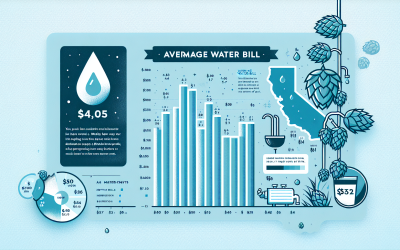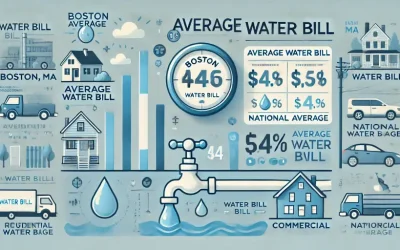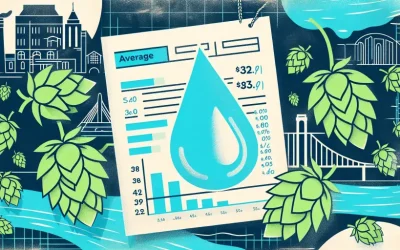Contents
Introduction
Just moved to Austin, TX, and wondering, ‘What is the average water bill in Austin?’ Well, you’re in the right place. Understanding your local water billing system is key to effectively managing your household expenses.
Expenses matter, but searches for “water heater installation near me” and “water filter installations near me” in Austin, TX should come first to maintain water safety and reduce future repairs. Water Guides is ready to help.
So, let’s dive into the details.
Overview of Water Billing in Austin, TX
The primary water service provider in Austin is Austin Water. Austin Water operates on a monthly billing cycle, and they measure water usage in gallons. It’s important to keep track of your usage to avoid any surprises when the bill comes.
Breakdown of Water Bill Charges in Austin, TX
To fully understand your water bill charges in Austin, they can be broken down as follows:
- Fixed Charges: These are service charges for water supply and wastewater management. Essentially, these charges cover the cost of having access to city water and sewer services.
- Usage Charges: This is where your water consumption comes into play. Austin has a tiered rate structure, meaning the more water you use, the more you pay per gallon. So, conservation pays off!
- Additional Fees: There can also be other charges, such as infrastructure fees or penalties if usage limits are exceeded.
Average Water Bill in Austin, TX
The average water bill in Austin, TX varies based on household size and consumption habits. However, according to Austin Water, for an average household size of 2 people, monthly water bills are typically around $50-$60. This is slightly higher than the national average, primarily due to the hot climate and resultant higher water usage.
Factors Influencing Water Bills in Austin, TX
Several factors can affect your water bill in Austin. Seasonal usage, particularly during the hot Texas summer, can increase consumption. The size of your household also influences how much water you use. Moreover, water conservation policies or restrictions in place at any given time might also impact your bill.
Tips to Reduce Your Water Bill
Want to lower your water bill? Here are some practical tips:
- Fix leaks as soon as possible.
- Install water-efficient fixtures and appliances.
- Be mindful of your water usage. Every drop counts!
Also, check if there are any available rebates or assistance programs for water conservation you can take advantage of in Austin.
Common Billing Issues and Resolutions
Unexpected high bills or meter inaccuracies are common water billing issues in Austin. If you have any concerns, don’t hesitate to contact Austin Water for support. They’re there to help you resolve issues quickly and answer any questions you might have.
Austin Water Quality
Wondering if tap water is safe in Austin, TX? Austin sources its water primarily from the Colorado River, which is stored in the Highland Lakes before entering the city’s treatment facilities. The water undergoes rigorous treatment processes, including coagulation, sedimentation, filtration, and disinfection. The process guarantees that it meets all federal and state safety standards set by the EPA and the Texas Commission on Environmental Quality (TCEQ).
However, some residents may still notice a slight chlorine taste or a degree of hardness due to naturally occurring minerals such as calcium and magnesium. These characteristics do not pose health risks but can affect taste and household appliances over time.
Installing a high-quality water filtration system can help improve taste, reduce mineral content, and provide an extra layer of protection against potential contaminants.
Conclusion
Managing your water bills in Austin, TX, involves keeping an eye on your usage, staying informed about local policies, and doing your best to conserve water. Every effort to save water not only helps your wallet but also contributes to water conservation for our future.
For more water-saving tips, whole house water filter reviews, or the best alkaline water filter, check out the rest of our Water Guides.






